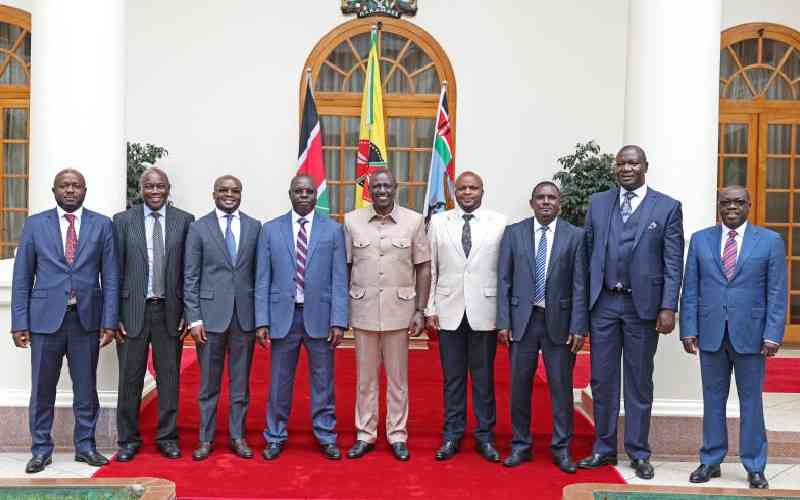×
The Standard e-Paper
Smart Minds Choose Us

President William Ruto has always found a way to win over people - even when he was in flux like when he fell out with his boss Uhuru Kenyatta in their second term and interaction with him attracted a harsh reaction.
During those trying times, though, his Karen residence in Nairobi teemed with visitors, whose number and frequency increased during and a year before the August 9 elections.